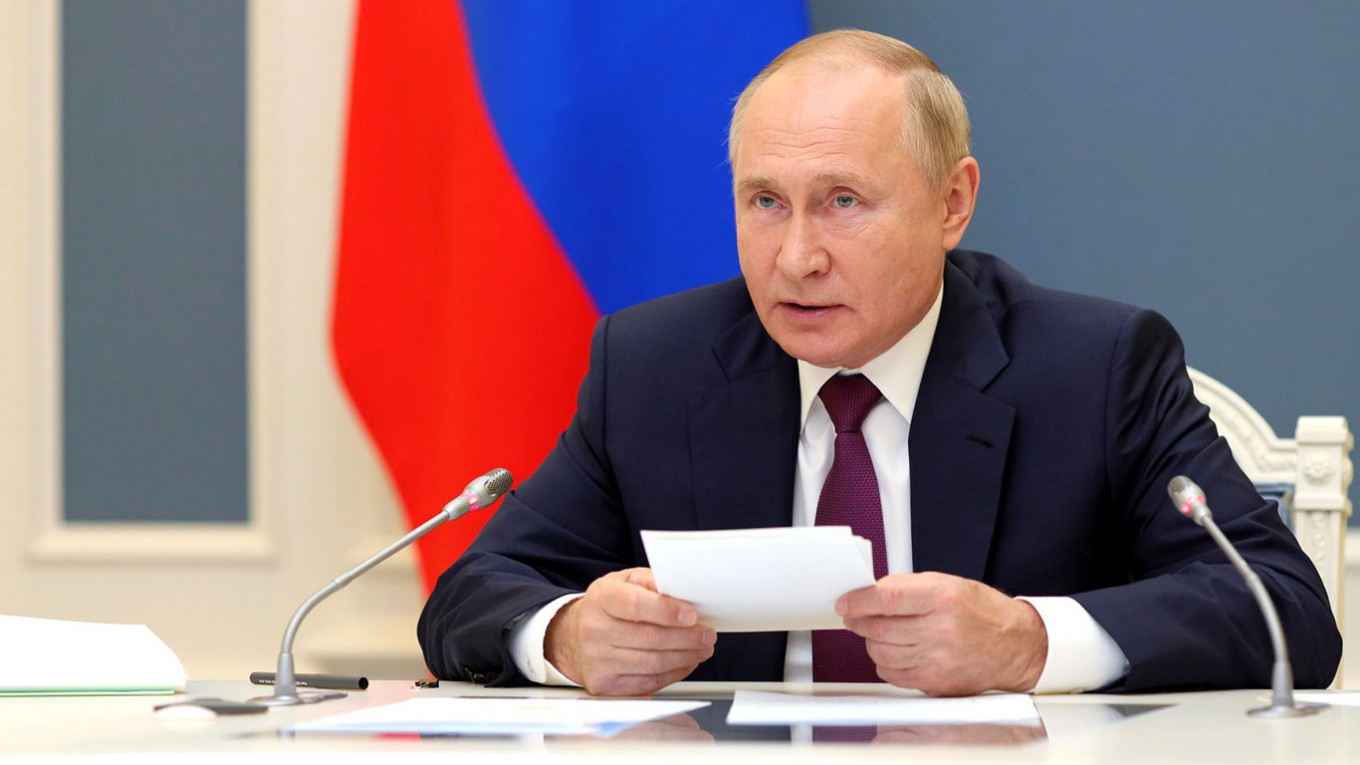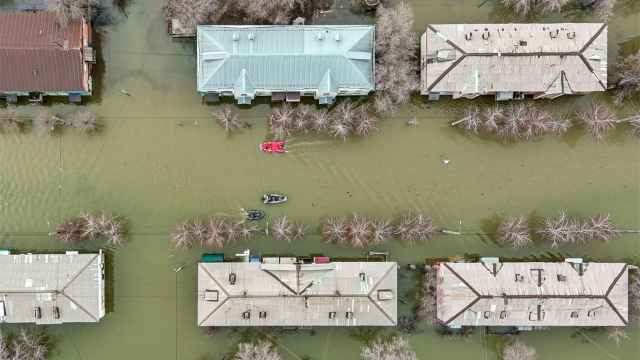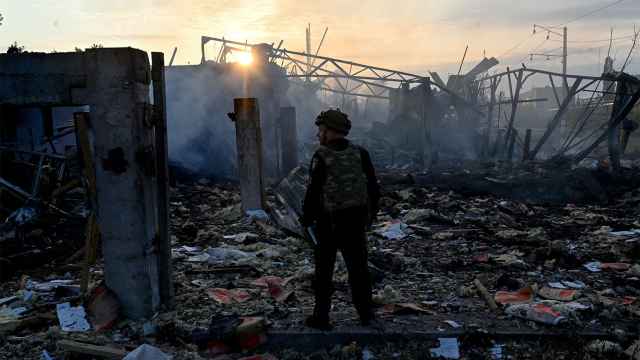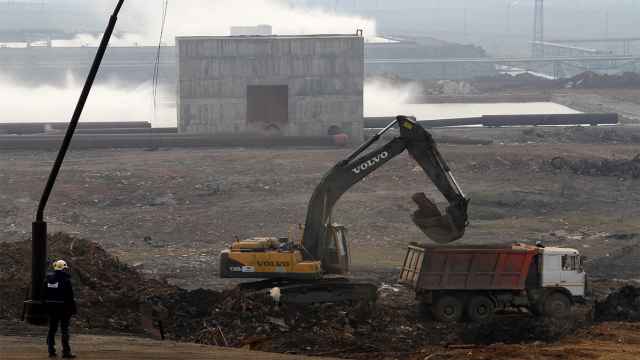America’s Joe Biden may have said at the G20 summit in Rome that Russia (and China) “basically didn’t show up in terms of any commitments to deal with climate change,” but this may have been a little ungenerous. Vladimir Putin has been on a journey, after all, and his transition from virtual climate change denier to advocate may be late, but it is also quite telling.
Evolution
Back in 2003, he treated it as a joke, quipping that “maybe climate change is not so bad in such a cold country as ours? Two to three degrees wouldn’t hurt — we’ll spend less on fur coats, and the grain harvest would go up.”
Later, he would sometimes talk the talk, but he was hardly walking the walk. His promises to cut Russia’s emissions lacked the necessary ambition, and he would periodically still try to deny the anthropogenic nature of climate change, blaming it on everything from volcanos to galactic perturbations, just one step short of a great disturbance in the Force.
In the past year, though, his rhetoric has become increasingly serious and he has mandated his government to draw up plans to make Russian carbon neutral by 2060. This conversion has come late, and while he may have come to appreciate the seriousness of the challenge, he does not seem to have a firm grip on what an adequate response will entail.
His recent claims that Russia’s forests will sequester enough carbon to offset anticipated rises in emissions are open to serious question, not least given the countervailing effect of the massive and periodic forest fires which, themselves, are exacerbated by climate change.
Nonetheless, there clearly has been a change in Putin’s thinking, and this process provides an interesting case study of policymaking in such a personalized and centralized system.
Despite his forays into dubious amateur history, it is fair to say that Putin is not a thought leader. Instead, he likes to be courted and wooed, to allow a range of policy entrepreneurs to set out their stalls and pitch their ideas. Not only is he looking to see which appeal the most, he also gauges the response various notions receive from the public and, above all, the elite. Then, he makes a decision.
One of the by-products of this approach is, paradoxically, that he is often not truly invested in any approach, and if he deems it appropriate will simply change track. In 2014, for example, there seems to have been a distinct shift in policy over the Donbas, with virtual annexation of “Novorossiya” adopted and then discarded.
This can be a strength or a weakness, but it does make consistent application of unpopular policies difficult, something that will be a particular problem when Putin fully internalises that there are no quick, easy and above all cheap and painless responses to climate change. Maintaining his enthusiasm for a response will be a constant challenge for its advocates, as well as the world community.
To this end, open criticisms such as President Biden’s are probably unhelpful. If past experience is anything to go by, Putin responds better to a combination of public respect and private challenge (as in Geneva), while direct censure tends to make him recalcitrant.
Either way, it is therefore also worth looking at who the interests and individuals who seem to have led Putin to this new position may be, and whether they are likely to want or be able to maintain the pressure.
The interesting thing is that this appears to be a broad-based coalition of actors who, under other circumstances, would have little in common. Crucially, they are able to articulate a position based solidly on pragmatic self and national interest.
The advocates
The military, for example, is concerned about the effects of climate change in the north and south. As permafrost thaws, according to Minister of Natural Resources and the Environment Alexander Kozlov, it has damaged more than 40% of infrastructure and buildings in the High North.
As military bases, airfields and ports become vulnerable, billions of rubles earmarked for other uses will have to be spent moving, repairing or replacing them. Meanwhile, there is concern that desertification in Central Asia will bring hunger, migration and instability, generating new challenges along that flank.
Climate change is also affecting the operations of the oil and gas industries in the north, with a 2020 study finding that around 23% of technical failures and 29% of loss in fossil fuel extraction were a result of permafrost degradation, with 45% of all of the country’s hydrocarbon projects at risk.
There were early hopes that warming would open up areas of Siberia to agriculture, something even highlighted in the foreign media, including the ludicrous suggestion that this was "How Russia wins the Climate Crisis." However, these have since been moderated by an awareness of the cost of building the necessary infrastructure to exploit the new opportunities. More to the point, any possible gains would likely be more than offset by the way existing farmland would experience desertification.
Rising food prices are already a political concern today. The prospect that they could rise even further — and that national food security would become more dependent on foreign imports — is very much a concern for Putin, his political technologists in the Presidential Administration and prime minister Mikhail Mishustin’s government.
Finally, a growing number of politically well-connected businesspeople, such as Anatoly Chubais — currently presidential envoy for sustainable development — and Sberbank’s German Gref have themselves become more active in elevating the climate change agenda, likely to be because they see the commercial opportunities, as well as because they appreciate the wider national need.
Policy shift
Put together — especially when framed by figures such as Ruslan Edelgeriev, the former Chechen prime minister turned Special Presidential Envoy for Climate Change — the combination of political, military and economic rationales for a policy shift appear to have become compelling.
As noted above, though, the likelihood is that this is a pragmatic decision. The question will be whether the policies needed to address climate change in the long term will survive the short-term exigencies of political survival.
A Message from The Moscow Times:
Dear readers,
We are facing unprecedented challenges. Russia's Prosecutor General's Office has designated The Moscow Times as an "undesirable" organization, criminalizing our work and putting our staff at risk of prosecution. This follows our earlier unjust labeling as a "foreign agent."
These actions are direct attempts to silence independent journalism in Russia. The authorities claim our work "discredits the decisions of the Russian leadership." We see things differently: we strive to provide accurate, unbiased reporting on Russia.
We, the journalists of The Moscow Times, refuse to be silenced. But to continue our work, we need your help.
Your support, no matter how small, makes a world of difference. If you can, please support us monthly starting from just $2. It's quick to set up, and every contribution makes a significant impact.
By supporting The Moscow Times, you're defending open, independent journalism in the face of repression. Thank you for standing with us.
Remind me later.








